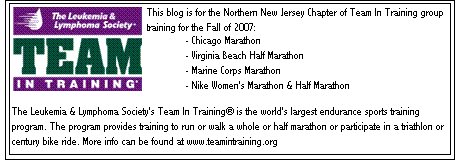Christopher Barron

On July 23rd, 9 year old Christopher Barron, of Glen Rock, NJ, nephew of our running coach Melissa, passed away. He had a passion and zest for life and just wanted to be an ordinary kid. He loved to ski, play baseball, swim at the Glen Rock pool and do tae kwon do. Christopher was an avid Mets fan and loved spiderman. He also liked to paint and write comic books. He couldn't wait to go to fourth grade and be with his friends again.
Although he lost his fight, he truly fought with everything he had until the bitter end. He was, and continues to be, an inspiration to many including his dear family. Thankfully he was only in pain near the end and now his suffering his over.
Joey Cialkowski
Joey has been with the TNT family for the last 9 years. At 5 years old he was diagnosed with acute lymphoblastic leukemia (ALL), and battled that for 3 years from 1998 to 2000. As a result of the radiation needed to save his life, he suffered 2 subsequent brain tumors in 2005 and again in February this year 2007.
Joey has always been strong for his family and friends, and two weeks ago decided that he would end his chemotherapy. He said to his parents that it is almost time for him to go to heaven, and then on Saturday morning, he slipped into a coma.
Joey is at home, and in no pain. He is surrounded by his beloved family and friends, and a hospice team who are the best.
Pat Beck said that Tuesday morning, Joey woke up, told his family, Arlene and Frank and Michael that he loved them, and that heaven was beautiful. He then slipped back into a coma. How amazing and what a wonderful gift to his family, that he was able to awaken to be able to do this.
Joey has touched so many lives in the last 9 years, anyone who came to know Joey is a better person for having known him. Joey was the honored patient for our Spring 2003 season, and again in Spring 2006, when his Dad, Frank, walked the Alaska marathon.
We ask that you keep Joey and his family in your thoughts and prayers as his time draws near, and keep the wonderful story of how this amazing 14 year old young man has bravely fought blood cancers for over 9 years.
Reach out and tell your own friends and family how much you love them and how important they are to you.
We may lose a battle every now and again, but with your help, we can win the war against blood cancers.
Coach David









